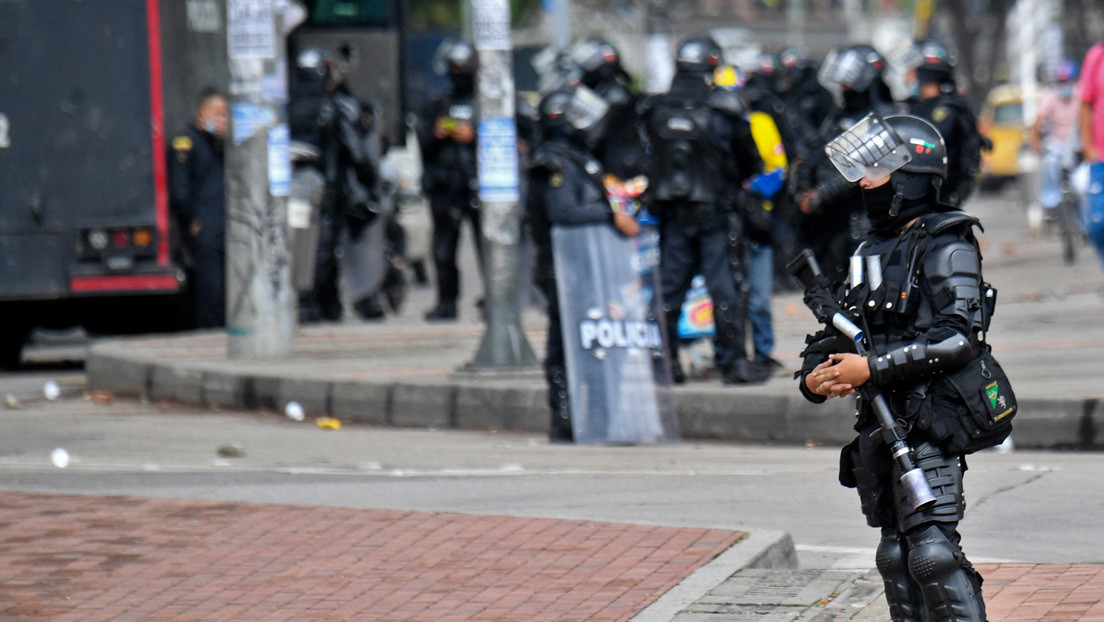RIO DE JANEIRO, BRAZIL – A report released on Wednesday, June 9, by independent organization HRW (Human Rights Watch) claims that the Colombian police acted abusively in the repression of “mostly peaceful” demonstrations that began last April 28 – since then, several trade unions, young students and civilians with no party affiliation have been on the country’s streets.
At first, the uprising concerned a tax reform planned by the center-right government of Iván Duque. The bill would impose a heavier tax burden on the middle class, largely to cover the costs incurred in fighting the coronavirus pandemic.

The first clashes between protesters and police have been violent, with arrests, injuries and deaths – officially, 46 civilians and 2 police officers. However, this figure is challenged by human rights associations such as Indepaz, which claims there are over 50 victims, and HRW, which counts 68.
The president backed down from the taxation bill, but the protests did not stop, and the brutality of police repression increased. Protesters then began to demand more jobs, better health care (Colombia’s health care system is saturated by the pandemic), and better quality education.
The country’s chronic debts joined the agenda, as well as demands for better living conditions for the “desplazados” (people displaced) by the conflict with the guerrillas since the 1960s, who live in precarious situations in big city suburbs, and the demand for the reintegration into society of the FARC (Revolutionary Armed Forces of Colombia) ex-combatants, an approved item in the peace agreement.
The Duque government’s discourse is that demonstrations are respected and that only abuses, attributed to “vandals”, are being punished. The Colombian president is claiming that there has been foreign intervention in the protests, at the behest of Venezuelan dictator Nicolás Maduro, in an attempt to destabilize his administration.
In its report, HRW provides accounts of executions conducted by national police officers, as well as the use of violence, firearms, and sexual abuse. Many of the arrests were classified as arbitrary. “These brutal abuses are not isolated incidents by rogue officers, but are rather related to the systematic training of Colombian police officers,” said José Miguel Vivanco, the organization’s director for the Americas.
The document also attests to the presence of police officers dressed as civilians who would have blended in with demonstrators and killed 4 people. The report states that among those killed by the police, 16 were shot dead.
After over a month of protests, the government on Sunday, June 6, announced a set of measures to modernize the Ministry of Defense and promote the “complete transformation” of the police forces. Duque pledged to establish a new disciplinary statute and a new system for taking complaints and denunciations in order to “achieve excellence” in police work.
The changes also include a review of protocols for the “legitimate use of force,” a change in the name of the defense portfolio to the Ministry of National Defense and Citizen Security, and new uniform designs for police officers, in blue, which Duque says “conveys empathy, courtesy, tranquility, and trust to citizens.”
Human Rights Watch recommends that the reform prioritize the training of new officers and more respectful training of those currently on the job, “to prevent further abuses.”
Vivanco also says it is advisable to separate the police from the Army, which operates jointly in Colombia. “This would enable a specific standard of enforcement and surveillance of police action to be maintained.”
The NGO refers to the acts of vandalism as occasional – there have been attacks on police officers and the burning of a police station, and 2 officers were killed. However, the report states that “violence against police officers is unjustifiable, as are roadblocks that leave cities without supplies.” HRW calls for an investigation into the case of an officer who was raped by protesters in Cali.
The organization’s report was based on interviews with over 150 people, by phone and in person. Among them are victims, relatives, attorneys, and representatives of the judiciary in 25 Colombian cities. The NGO also interviewed the country’s current vice president and Foreign Minister, Marta Lucía Ramírez, and analyzed medical and police reports, as well as videos and photos posted on social networks.

